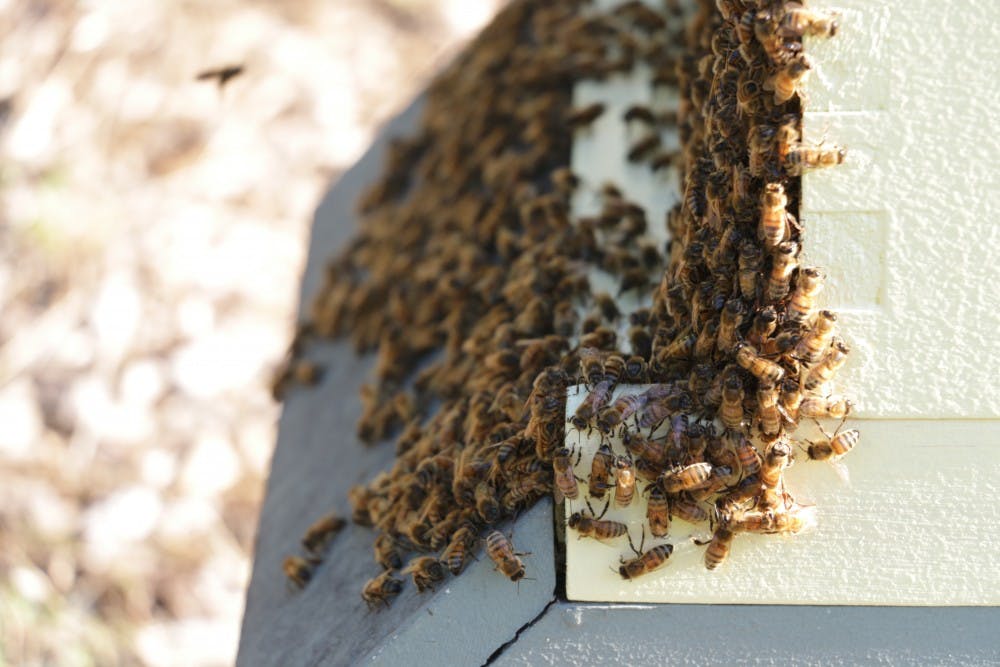One great resource is John Rintoul, president of the Orange County Beekeepers Association, who maintains two beehives on display at Carrboro High School. Stefan Klakovich, an AP environmental science teacher at the school, takes his classes out to observe the bees when they study agricultural systems.
“One of the things people really don’t have an appreciation for is our agricultural system,” he said. “It’s more complicated than just growing vegetables and selling them. It’s a global sort of thing and one piece of that are honey bees.”
Rintoul said the hives were moved from a muddy field with no parking to the school in hopes that the hives would be more accessible to the public.
“The demonstration hives are there so that we can provide demonstrations on beekeeping and any aspect of beekeeping that people are interested in to community groups and student groups,” he said. “Anybody that is interested, we will do a demonstration for.”
Klakovich started a beekeeping club and his students helped plant a pollinator garden near the beehive site. He said he, another teacher and a student are now keeping beehives at their homes as well.
At UNC, the Carolina Campus Community Garden, which grows fruits and vegetables for UNC’s lower-wage workers, also hosts a few beehives. Two of them are maintained by Anne Cabell, a volunteer beekeeper.
Cabell has been a hobbyist beekeeper for about 10 years. When she heard about the community garden, she offered her personal hives to help pollinate the plants. She gives tours to community and school groups.
“Honey bees pollinate one-third of the world’s food directly,” she said. “Indirectly, they actually pollinate about three-fourths of the world’s food, because they’re pollinating things that other pollinators need.”



